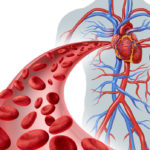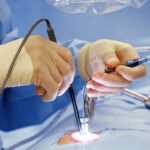- Discharge Medication/Tablets – It is important that you are clear on what medications you are on and when you should be taking them. You should buy enough medication to last one week on the day of discharge. In the first week after leaving hospital, before your tablets run out, you need to see your Local Doctor. If you are taking Warfarin (a blood thinning tablet) you may need to see your Doctor sooner. Some of your previous medications may have changed.
- A letter for your GP / Local Doctor – You will be given a letter from the hospital to give to your local Doctor at your first visit.
- You should be clear before you leave hospital when and whom you need to see for your follow-up. Discharge Summary would contain details of your follow-up visit in OPD.
- If you brought any X-rays with you when you came to hospital make sure you ask the nurse for these before you leave. They will not be psoted home if you forget them.
Extra Information Especially for Patients who have had Valve Surgery
- People with heart valve disease or who have had valve surgery must take extra precautions to prevent infection. This is because you are at some risk of developing bacterial endocarditis, which is an infection of the heart valve and surrounding tissue. Endocarditis starts with an infection in any part of the body, especially the teeth which allows bacteria to enter the blood stream and may then travel to the heart valve. The risk of infection is reduced if preventive antibiotics are taken prior to dental work and some surgical procedures. You must notify your Doctors and Dentist of your heart valve problems and medications you are taking. Contact your Doctor if you develop any signs of infection such as a wound that becomes red, oozy, hot, sore and does not heal, fever, sweating, loss of appetite.
- Depending on the type of valve used you will be put on ANTICOAGULANT THERAPY – FOR LIFE (for Mechanical Valve) or for a period varying from6 weeks to 3 months (for Bio-prosthetic Valve)
While on anticoagulant therapy, look for these signs and tell your doctor immediately if you see:
Obvious bleeding
- Prolonged bleeding form cuts, any bleeding that does not stop by itself.
- Increased menstrual flow, vaginal bleeding
- Nosebleeds
- Bleeding of gums from brushing
- Any unusual bleeding
Less Obvious Bleeding
- Red or dark brown urine
- Red or black stool
- Any illness or if you have any unusual or unexplained symptoms such as pain, swelling or discomfort
Additional things to remember
- Inform your doctor if you become pregnant. Warfarin should not be taken during pregnancy, since oral anticoagulations may adversely affect the unborn child. All women who may become pregnant should discuss the possible risks and available means of reducing these risks with their doctor.
- Inform other doctors and dentists before undergoing any treatment, surgery or dental work that you are taking an anticoagulant.
- Take the anticoagulant tablets only as prescribed by your doctor.
- Try to take the prescribed dose following your same schedule each day. Refill the prescription only on your doctor’s orders.
- Inform your doctor of illnesses like headache, blush ecohymotic patches on skin
- Make sure that you keep each doctor and lab appointment as scheduled.
- Advise your doctor before you make any changes in the amount of alcohol you ordinarily drink. It is also important to avoid any “binge” drinking.
- Maintain same diet; avoid binge eating and crash diets. In general, you should avoid excessive amounts of foods high in vitamin K such as green leafy vegetables, like spinach, cabbage and others like tomatoes and cauliflower
- Before taking any drug, even if prescribed by a doctor be certain to check with the doctor who is monitoring your anticoagulation. When we talk about drugs, we mean not only prescription drugs, but anything you might buy in a drug or grocery store for common colds, aches, pains and so on. Especially important are asprin, cold or cough preparations, certain stomach ache remedies (e.g., antacids), laxatives and vitamins. Even if you have been taking drugs in the past, be sure to check with your doctor before taking any after you have been put on Warfarin.



